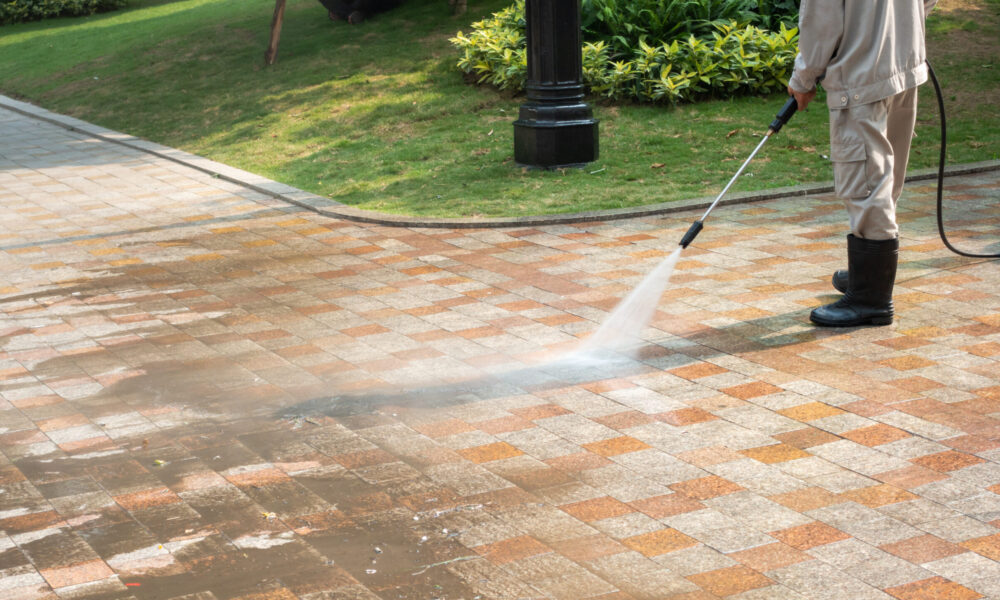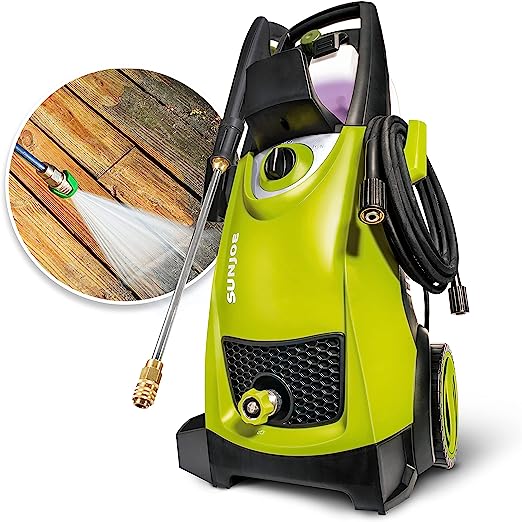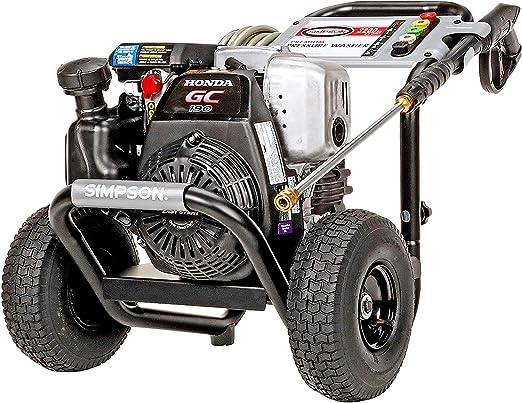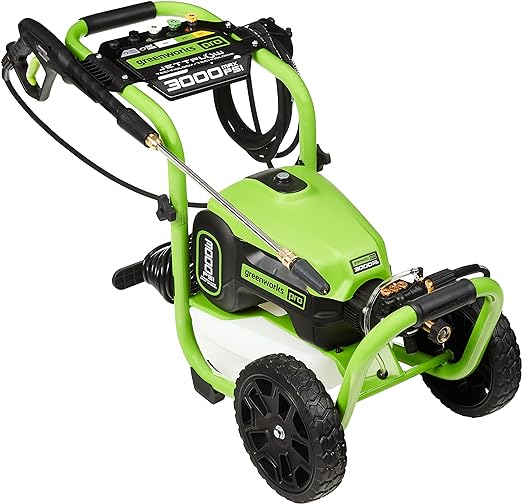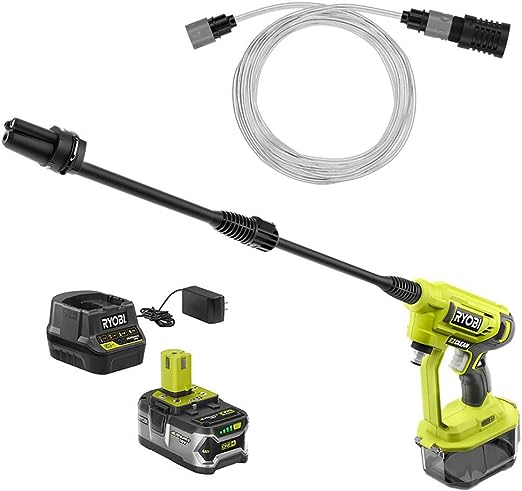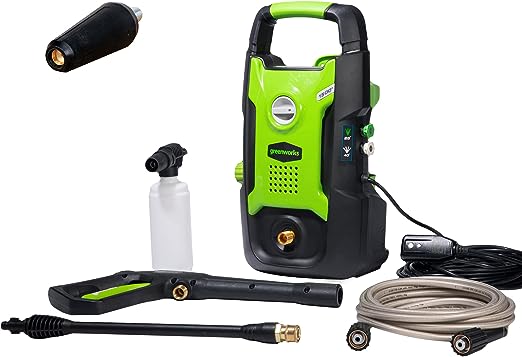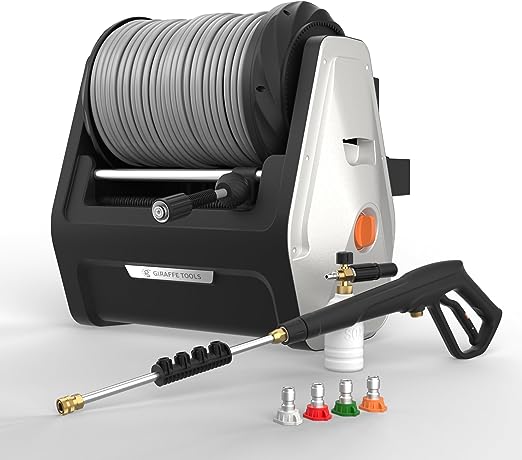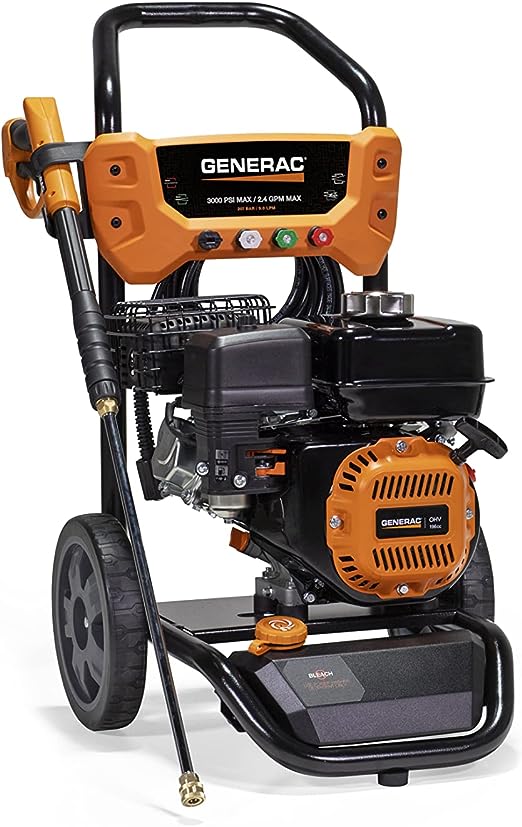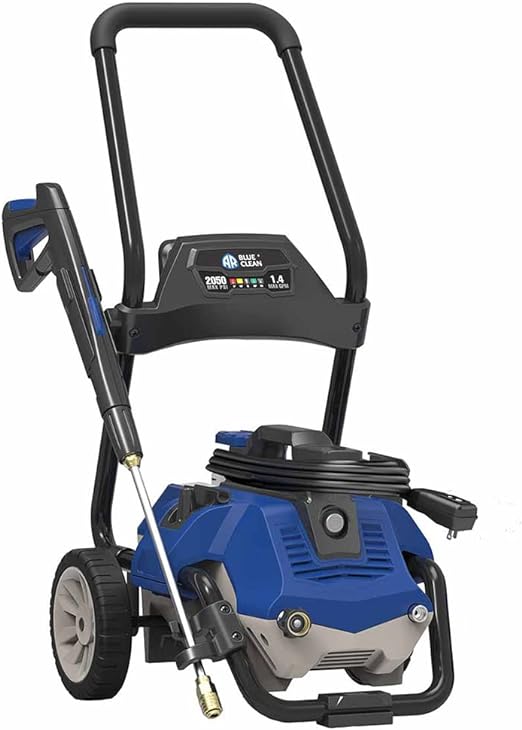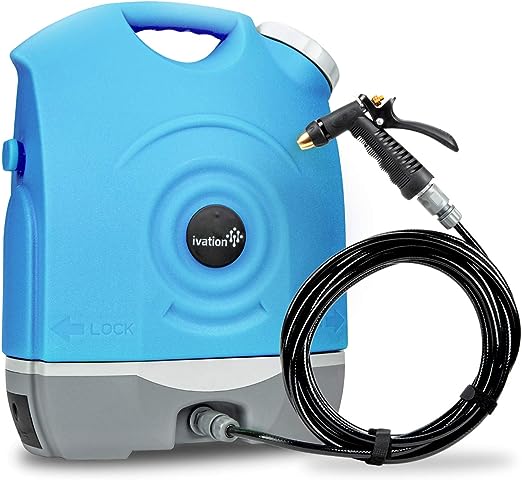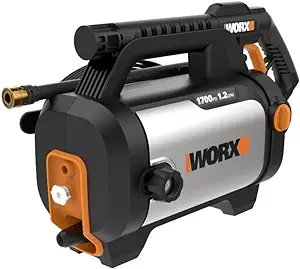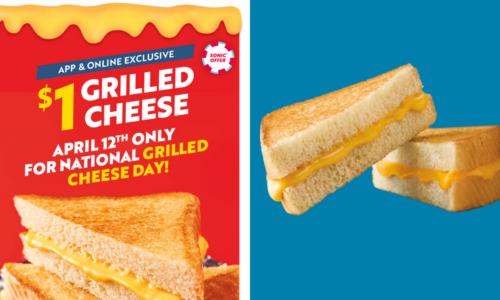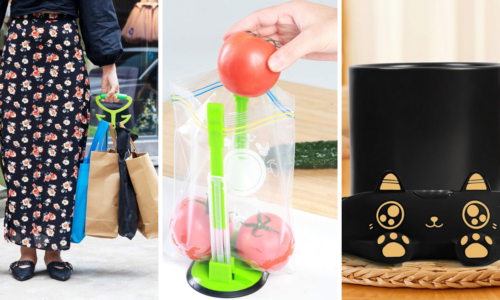The products and services mentioned below were selected independent of sales and advertising. However, Don't Waste Your Money may receive a small commission from the purchase of any products or services through an affiliate link to the retailer's website.
Search the phrase “satisfying pressure washing,” and scores of homemade videos will flood your screen. Sit back and enjoy as you watch people blasting away the dirt and grime on their patios, driveways, lawn furniture, home sidings and vehicles. Judging by the thousands of views these videos rack up, there is something oddly gratifying about watching others rid themselves of filth. It may even inspire you to buy your own pressure washer, even if it’s simply a hack to turn your garden hose into a pressure washer.
“As a landscaper, I find a pressure washer essential for keeping outdoor spaces clean and well-maintained,” says Lindsey Hyland, a gardening and landscaping expert at Urban Organic Yield. “It’s an absolute godsend for removing stubborn dirt, grime, and mold that often accumulate on patios, driveways, decks and fencing. And a pressure washer can be used to prep surfaces for paint or stain. It’s a versatile tool that saves a lot of time and effort compared to scrubbing or using a garden hose.”
But while watching others pressure wash their stuff may be a stress-reducing activity, buying your own pressure washer — from among the many brands and models available — can be a little more fraught. So, we spoke to landscapers, contractors and power tool experts to narrow the field by recommending the best pressure washers to buy, depending on your needs.
Jump To: Best Overall | Best Gas-Powered | Best Electric-Powered | Best Battery-Powered | Best Budget Pick | Best Wall Mount Option | Best for Driveways and Patios | Best for Cars | Best for Window Cleaning | Best for Lightweight Pressure
Here are the main factors to take into account when selecting the best pressure washer.
What To Look For
Power Source
You’ll need to choose between gas-powered, electric-powered and battery-powered. Mark Clement, a contractor, tool expert and founder of MyFixitUpLife, uses an electric pressure washer. “Electric units are compact, powerful enough for most jobs around the house, and they store easily,” he says. They’re also quieter, lighter and better for the environment.
Battery-powered pressure washers have similar benefits, plus they’re portable.
“Gas will deliver more power and is more suitable for commercial and professional users,” Clement says. “They’ll also deliver the most water to the work.” That extra power is why Bryan Clayton, the CEO of the lawn and landscaping service GreenPal, suggests that people who need to do heavy-duty pressure washing “always opt for a gas-powered model, ideally with 8 hp or above.”
Pressure Level
“Different pressure washers offer varying levels of pressure, typically measured in PSI (pounds per square inch) and GPM (gallons per minute),” says Aaditya Bhatta, a landscaping expert and founder of Plantscraze. “Higher PSI and GPM ratings are suitable for tougher cleaning jobs.”
Portability
Is the pressure washer wheel-based, handheld or wall-mounted? “One thing I look for in a pressure washer, aside from cleaning power, is portability,” says Todd Saunders, CEO of FlooringStores. “When you’re working on a job, you don’t want to have to stop every 20 minutes because you have to get help moving your pressure washer to a new location so you can finish the job.” A lightweight unit will be easy to carry around; a wall-mounted unit with a long hose will eliminate the need to do any heavy lifting at all.
Price
Pressure washers range in price from less than $100 to well into the thousands of dollars. The average price is around $250.
Extra Features
“Consider if any special attachments are available for specific tasks,” says Hyland. “If you plan on using the pressure washer frequently, look for one with additional features like auto shutoff or adjustable nozzle settings that can help make your work easier and more efficient.”
Our Recommendations for Best Pressure Washers
1. Best Overall — Sun Joe SPX3000 14.5-Amp Electric High Pressure Washer
$168.95 at Walmart $149 at Amazon
Power source: Corded electric | Pressure level: 2030 Pound per Square Inch | Portability: Wheeled, 24.3 pounds | Best Price: $149 (was $169) at Amazon | Special features: 5 spray tips for a variety of cleaning tasks, 2 removable tanks
The Sun Joe SPX3000 was the pressure washer most often recommended by the experts interviewed. “It’s my top pick due to its versatility, power, and affordability,” says Roman Smolevskiy, a general contractor and the owner of A+ Construction & Remodeling. Other experts pointed out that there are hardly any messes this pressure washer can’t clean. “Grease, tar, rust, heavy mildew, and mud can all be effectively tackled with this pressure washer,” says Rex Freiberger, CEO of Gadget Review Lawn & Garden. “Plus, it’s made out of durable materials, so it won’t get easily damaged and should last you for years to come.”
- Pros: powerful engine, 5 spray tips catered to different kinds of cleaning
- Cons: bulky to store, cord can limit mobility
2. Best Gas-Powered — SIMPSON Cleaning MSH3125 MegaShot 3200 PSI Gas Pressure Washer
Power source: Gas | Pressure level: 3200 Pound per Square Inch | Portability: Wheeled, 66 pounds | Best Price: $449 at Amazon | Special Features: 10-inch premium pneumatic wheels, 5 different nozzles
The SIMPSON Cleaning MSH3125 MegaShot was recommended by several of the experts interviewed (and also received a DWYM score of 9). “If you’re looking for a gas-powered option, the Simpson Cleaning MSH3125 MegaShot is a reliable choice with high pressure and durability,” says Liam Lucas, CEO of Off Road Genius. As a general rule, most experts praise the strong power of this washer. “Offering a high PSI, this is great for heavy-duty tasks,” says
Walter E Bennett, professional handyman for Green Leaf Air.
- Pros: powerful engine, durable, great for heavy-duty tasks
- Cons: pricey, loud, not eco-friendly, bulky to store
3. Best Electric-Powered — Greenworks 3000 PSI (1.1 GPM) TruBrushless Electric Pressure Washer
$319.99 at Amazon $449 at Lowes
Power source: Corded electric | Pressure level: 3000 Pound per Square Inch | Portability: Wheeled, 54.5 pounds | Best Price: $319.99 (was $449.99) at Amazon | Special Features: 5 nozzles, push-button start
Ryan Farley, the CEO of LawnStarter, likes the Greenworks brand of power washers. “Unless you’re doing heavy-duty, professional cleaning, you can definitely get by with an electric model of pressure washer,” he says. “I’m especially partial to this model. It’s powerful enough to get the job done, and also surprisingly quiet.”
-
- Pros: quiet, eco-friendly, easy maneuverability
- Cons: limited mobility, bulky to store
4. Best Battery-Powered — RYOBI RY120352K ONE+ 18-Volt 320 PSI 0.8 GPM Cold Water Cordless Power Cleaner
$148.99 at Amazon $149 at Home Depot
Power source: Battery-powered | Pressure level: 320 Pound per Square Inch | Portability: Handheld, 8.14 pounds | Best Price: $149 at Amazon and Home Depot | Special Features: Comes with battery, charger and 20-foot siphon hose that can connect to your garden hose
Experts noted that battery-powered pressure washers are less common than gas and electric, but both Lucas and Bhatta recommended the Ryobi brand makes a good model in this category. “This battery-powered washer delivers satisfactory cleaning with cordless convenience,” says Lucas.
- Pros: lightweight, portable, quiet
- Cons: not suitable for heavy-duty tasks
5. Best Budget— Greenworks GPW1501 1500 PSI 1.2 GPM Pressure Washer
$100.12 at Amazon $115.99 at MaxTool
Power source: Corded electric | Pressure level: 2000 Pound per Square Inch | Portability: Handheld, 17 pounds | Best Price: $100.12 (was $119.98) at Amazon ) | Special Features: Soap applicator, rotary brush
Experts like this eco-friendly pressure washer because it’s easy to plug and go (no battery to charge) and a good value for the price. “This is a budget-friendly option that offers a decent performance,” says Bhatta.
- Pros: easy to use, easy to store, eco-friendly, quiet
- Cons: not as much power as other washers, no wheels so needs to be carried
6. Best Wall-Mounted— Giraffe Tools Grandfalls Pressure Washer Plus
$287.99 at Amazon $359.99 at Walmart
Power source: Corded electric | Pressure level: 2.4 gallons per minute | Portability: Wall-mounted | Best Price: $287.99 (was $359.99) at Amazon | Special Features: Retractable pressure hose reel, on-board storage for spray gun, nozzles and foam cannon
There’s no need to drag around this pressure washer. Just mount it to the wall in your garage, and pull the 100-foot retractable hose outside to spray the driveway, sidewalk, car, fence or whatever else needs rinsing. Few wall-mounted options are available at this affordable price (they often cost in the thousands), and this washer has received favorable reviews.
- Pros: Easy to use, quiet, eco-friendly
- Cons: Limited mobility
7. Best for Driveways and Patios — Generac 8896 3000 PSI 2.4 GPM Gas-Powered Residential Pressure Washer
$344.99 at Amazon $359 at Walmart
Power source: Gas-powered | Pressure level: 3000 Pound per Square Inch | Portability: Wheeled, 58.2 pounds | Best Price: $344.99 (was $399) at Amazon | Special Features: Easy-access hose connection, ergonomic spray gun, never flat tires
A lot of power is required to make patios and driveways look new, and several experts mentioned this pressure washer as a good option. “The Generac is known for its high cleaning power and reliability,” says Smolevskiy. And Bennett mentioned that it’s “adept at cleaning large, flat surfaces.”
- Pros: powerful engine, efficient cleaning, easy maneuverability
- Cons: loud, not eco-friendly
8. Best for Cars — AR Blue Clean AR2N1 Electric Pressure Washer-2050 PSI, 1.4 GPM
$126.42 at Amazon $248.75 at Walmart
Power source: Corded electric | Pressure level: 2050 Pound per Square Inch | Portability: Wheeled, 35.3 pounds | Best Price: $126.42 at Amazon | Special Features: Durable trigger gun with M22 connector, built-in accessories storage
Experts like this pressure washer for cars because of its versatility: It can be wheeled around or lifted from its cart and turned into a portable handheld washer. Plus, says Bennett, “it’s gentle on paint but tough on dirt and easy to maneuver around vehicles.”
- Pros: Both wheeled and handheld, eco-friendly, no battery to charge
- Cons: Limited mobility, less powerful engine than some other models
9. Best for Window Cleaning — Ivation Multipurpose Portable Spray Washer w/Water Tank
$159.99 at Amazon $159.99 at Walmart
Power source: Battery-powered | Pressure level: 130.5 pounds per square inch | Portability: Handheld (with shoulder strap option), 7 pounds | Best Price: $159.99 at Amazon and Walmart | Special Features: Removable water reservoir, lithium-ion battery, 2 heads, 2 plugs, 2 spray guns, 2 storage compartments
Experts praise the Ivation for its ability to clean without harming glass windows. While Smolevskiy says that “it works wonders on windows with its gentle yet effective cleaning,” Lucas adds that this pressure washer also gets high marks for “offering adjustable pressure to suit the delicacy of the task.”
- Pros: compact, rechargeable, eco-friendly, gentle on windows
- Cons: less powerful than other models, not suitable for heavy-duty tasks
10. Best for Lightweight Pressure — Worx WG602 13 Amp Electric Pressure Washer
$123.99 at Amazon $122.99 at Walmart
Power source: Corded electric | Pressure level: 1700 Pound per Square Inch | Portability: Handheld, 16 pounds | Best Price: $122.99 at Walmart | Special Features: Onboard nozzle and wand storage
For smaller-scale jobs, experts say this pressure washer is compact and easy to carry around. “If you need a lightweight pressure washer, the WORX is a good option with its easy maneuverability,” says Lucas.
- Pros: portable, cost-effective, good amount of pressure for vehicles or windows
- Cons: limited mobility, limited power
Sources
- Mark Clement, a contractor, tool expert and founder of MyFixitUpLife
- Lindsey Hyland, a gardening and landscaping expert at Urban Organic Yield
- Bryan Clayton, the CEO of the lawn and landscaping service GreenPal
- Aaditya Bhatta, a landscaping expert and founder of Plantscraze
- Todd Saunders, CEO of FlooringStores
- Roman Smolevskiy, a general contractor and the owner of A+ Construction & Remodeling
- Rex Freiberger, CEO of Gadget Review Lawn & Garden
- Liam Lucas, CEO of Off Road Genius
- Walter E Bennett, professional handyman for Green Leaf Air
- Ryan Farley, the CEO of LawnStarter
